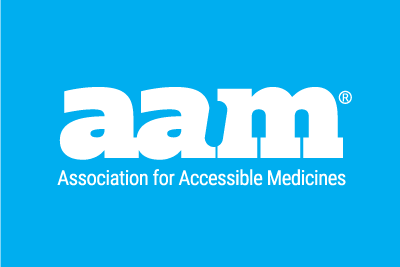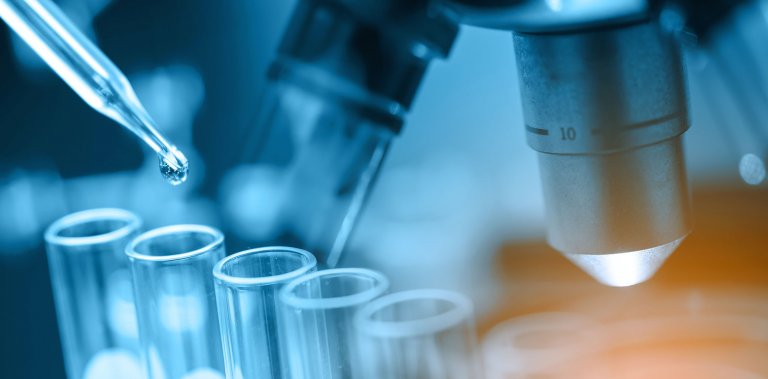Biologic drugs are pushing the boundaries of medicine, and their potential to benefit patients with unmet medical needs has never been more promising. For example, researchers are using a viral therapy to treat advanced melanoma by targeting only cancerous cells, and prompting the patient’s immune system to attack them as well.
But all too often these medicines are prohibitively expensive, creating barriers to patient access and limiting their life-saving power. In 2017 alone, spending on biologic medicines hit a record $120 billion and, in the years ahead, this will contribute to a rising percentage of overall healthcare spending.
Now, thanks to new emerging FDA-approved medicines known as biosimilars — a highly similar version of a biologic that is designed to match its safety, quality and efficacy — these advanced treatments are becoming available at a lower cost to millions of patients in the U.S. living with cancer, rheumatoid arthritis, Crohn’s disease, anemia, psoriasis and other conditions.
Like generic drugs that saved American consumers $253 billion dollars in 2016, biosimilars drive competition in the marketplace by creating an effective alternative to more expensive brand-name biologics. If realized to their full potential, biosimilars would provide greater access to biologic medicines for an additional 1.2 million patients and could save the U.S. healthcare system up to $54 billion over the next decade. Women, seniors and low-income Americans in particular would benefit from improved access to lifesaving biosimilar medicines.
Many other countries around the world have accelerated the pace of bringing these life-saving treatments to patients. Yet in the United States, barriers in the way the prescription drug marketplace works continues to hinder their availability, and abuse of the patent system and other inappropriate tactics by drug manufacturers are creating unnecessary hurdles. By restricting access to samples needed for biosimilars development, for example, brand drug companies are impeding the research and testing necessary to meet FDA’s approval standards, which are based on comparing the reference brand biologic product and the biosimilar product.
The first biosimilar approved in the U.S. in 2015 was already previously available in 60 other countries around the world. Today the U.S. trails many countries in the number of biosimilar approvals, launches and resulting savings for patients: More than 40 biosimilar medicines have been approved in Europe in the last decade, while 14 have been approved by the FDA and only six have successfully made it to the American market.
But as with generic drugs, boosting FDA approvals for biosimilars is no guarantee these medicines will get into the hands of patients. In no place is this reality more strongly felt than in the case of the brand biologic Humira®. Europe has approved 5 biosimilars to Humira which have been priced as low as 80% lower than their brand counterpart. However, in the U.S., the makers of Humira abuse of the patent system has guaranteed that their product will see no competition until 2023. To that end, the promise of biosimilars can be realized only if policies are put into place that promote the development of a robust market, including:
Pass the CREATES Act
The CREATES Act includes important provisions that would establish an efficient, tailored path for biosimilar manufacturers to acquire the samples needed for drug development. Its passage would make it easier for biosimilar companies to bring their products to market sooner and promote biosimilars investment.
Protect against patent abuses
Patents are an important element of innovation in drug development and essential to supporting the discovery of new, effective treatments to address unmet medical needs. However, the patent system is increasingly being gamed to unfairly prolong a brand-name drug’s monopoly and delay patient access to more-affordable, FDA-approved biosimilar medicines. Policymakers should ensure that the patent system and regulatory approval pathway promote true innovation, rather than innovative gamesmanship and allow for timely competition.
Educate and combat misinformation
In addition to policies that foster a robust marketplace, prescriber and patient confidence is crucial to the adoption of these innovative medicines. The FDA has recently launched an education campaign aimed at educating prescribers and plans to release additional materials focused on patients. Sustained, credible education is critical to address misinformation campaigns designed to deter physicians and patients from switching to biosimilars.
Patients continue to reap the benefits of significant advances in specialty biological medicines with longer and healthier lives. Unfortunately, the cost of these products continues on an unsustainable trajectory. By addressing the issues currently preventing robust biosimilar competition, policymakers can help ensure the development of a sustainable biosimilars market in the U.S. that will benefit patients through greater accessibility and lower prices. Learn more in the Biosimilars Council White Paper, Breaking Through on Biosimilars.
This article originally appeared on BCBS ProgressHealth.
By Chip Davis, AAM President and CEO




